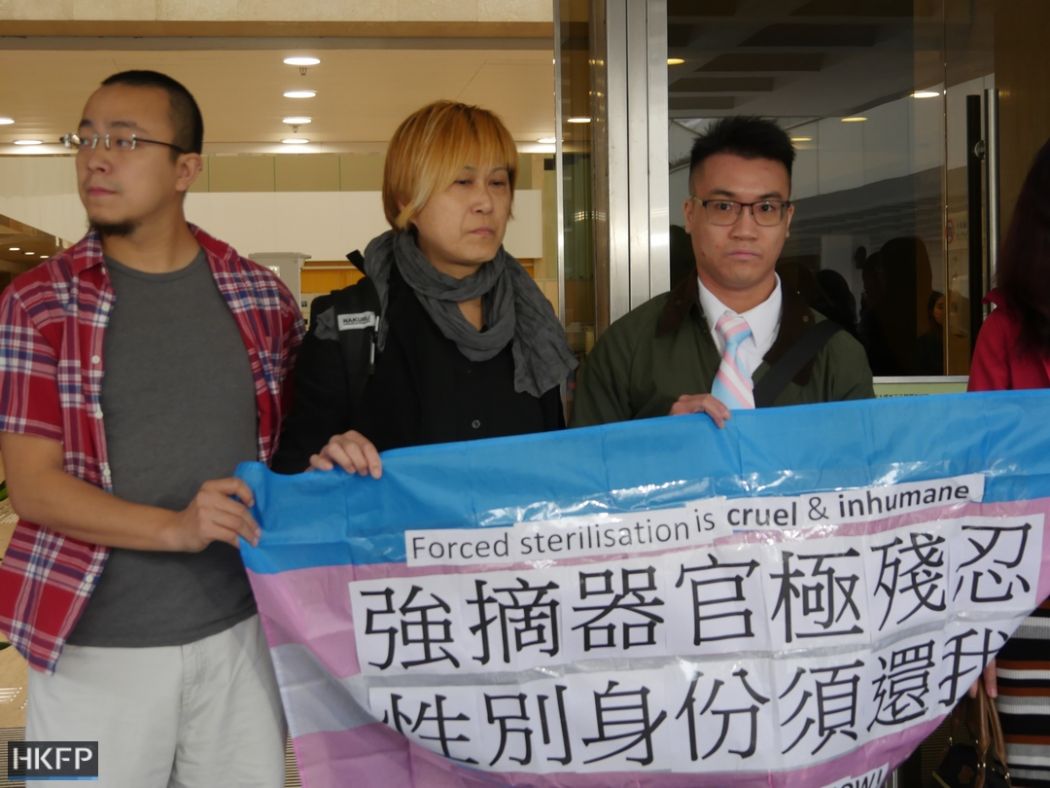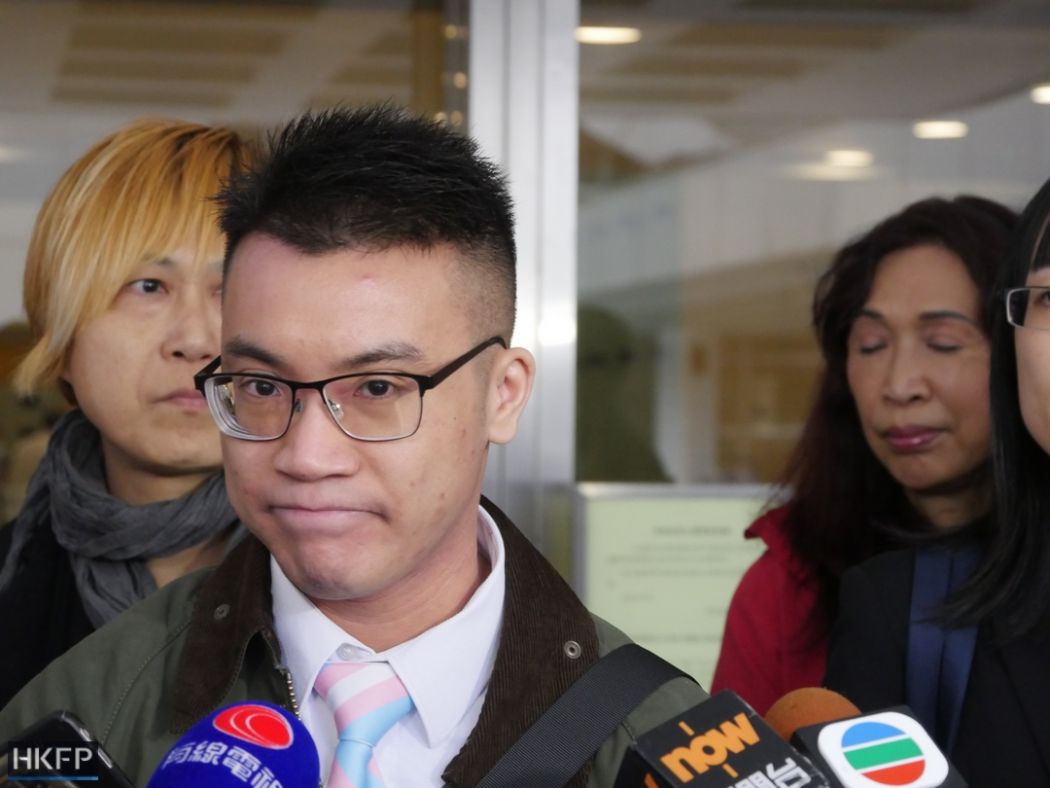The High Court on Friday affirmed the government’s policy that a transgender person can only change the sex entry on their identity card if they undergo full sex reassignment surgery.
The judicial review cases by three transgender applicants were dismissed. Speaking after the judgment was handed down, the applicants’ lawyer expressed disappointment and said they would appeal.

Judge Thomas Au said that changing the gender entry on ID cards was “not solely a medical issue, but also a legal issue” and would affect the wider public interest. For example, emergency services and healthcare providers would need to rely on the data.
Au agreed that sex reassignment surgery was a serious infringement on physical integrity, but it was the “only objectively ascertainable criterion” to determine a person’s gender.
Anything falling short of full surgery would only be a type of “self-definition,” Au said.
“Leaving it up to the individual cannot be a workable rule as it leads to uncertainty and arbitrariness, and in effect there would be no rule as a change of gender entry can be made simply by the person declaring so,” he wrote in his 59-page judgment.

Au added that the government’s policy could not be seen as coercing transgender people into undergoing sex reassignment surgery. Those who choose to do so, even if it was only for the purpose of effecting the change on their ID cards, expressed valid and informed consent.
Au also ruled that the policy was not discriminatory, because both female-to-male and male-to-female transgender people could comply with the government’s requirement.
Legal challenge
The legal challenge was started by three female-to-male transgender applicants: Henry Edward Tse, and two others called “Q” and “R” in order to preserve anonymity.
According to their lawyers, all three had been living as male for years, and have undergone surgery to remove their breasts and received hormonal treatment. However, they did not want to surgically alter their genitalia or reproductive organs.
They took the government to court after it refused to change the gender entry on their identity cards, saying that they have not completed their sex reassignment surgeries.

Their case came after the 2013 landmark court case of W v. the Registrar of Marriages, where Hong Kong’s top court recognised a transgender person’s acquired gender.
On Friday, Tse and his lawyers said they were disappointed but not wholly surprised.
“The W case… was only resolved in the Court of Final Appeal. The applicants fully appreciate that this case would also likely only be resolved in the Court of Final Appeal,” their lawyer said.
‘Setback’ in fight for equality
After the judgment, Tse and other LGBTQ activists displayed a banner outside the High Court saying “Forced sterilisation is cruel and inhumane.”
Amnesty International Hong Kong called the result a setback in the fight for equality.
“No one should be forced to undergo gender affirming surgery in order to have their gender legally recognised,” said Man-kei Tam, Director of Amnesty International Hong Kong.

“Amnesty International believes a new legal gender recognition procedure must be quick, accessible and transparent, and should not include any requirements for medical treatments of any kind as a precondition.”
Local LGBTQ rights group Pink Alliance also issued a statement expressing disappointment.
“We will support Henry should he appeal against this judgment. We will continue to advocate a complete overhaul of the existing policy concerning transgender persons, which is outdated and inhumane,” the statement read.
The Immigration Department did not immediately return HKFP’s request for comment.
